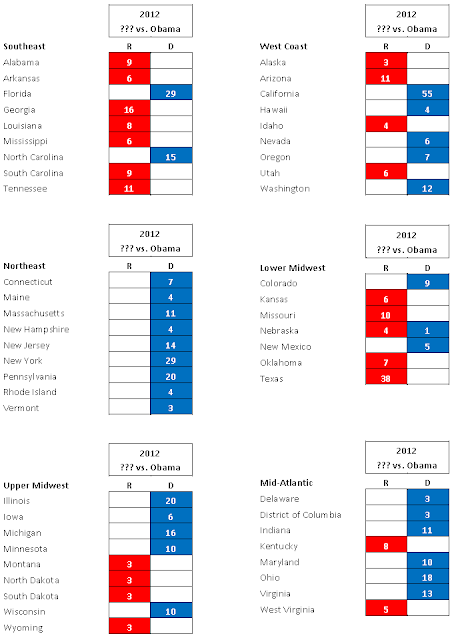Why are Barack Obama's critics so smart?
Nile Gardiner - foreign affairs analyst and political commentator for The Telegraph – lists 5 reasons why President Obama's conservative critics are SIGNIFICANTLY SMARTER in their approach and thinking:
- they have a far better understanding of the concerns of the American people and the mood of the country – polls show the majority of Americans believe the country is moving down the wrong track
- they reject big government and the ludicrous idea that bureaucrats know best – recent polling shows the majority of Americans see big government as our biggest threat
- they reject appeasement of America's enemies, support America's allies and don't believe in apologizing for their country – Obama's foreign policy has been a disaster & key allies have been "treated with indifference and at times hostility"
- they believe that a presidency should behave with decorum, and show respect for opposing views – and they have been smart to criticize the arrogance of Obama's imperial presidency
- they know a gaffe-prone, embarrassing administration when they see one
Steve McCann @ American Thinker asks if the American people are prepared to sit through another term of George H.W. Bush?
If we nominate another moderate like Romney under the false pretext of electability, conservatives like me will apathetically vote for him over Obama, "which will hurt the down ballot contests for the U.S. Senate, the House and state governorships."
Romney's strategy mirrors previous moderates: speak like a conservative, claim that only a moderate can get elected, divide the conservative vote, and overwhelm challengers in the media and with establishment money.
Romney has always "shown himself to be more than willing to compromise with the Left and the Democrats," but only a dramatic course reversal can save us from becoming Europe, and we need "a bold and decisive leader that could not only initiate change but be honest with the American people."
Unfortunately the Republican establishment treats this upcoming election "as if it were no different from any other during the past sixty years", concerned only about retaining power through the control of the purse strings, and willing to put off difficult decisions via compromise.
In the Washington Post, Charles Krauthammer argues that Republicans shouldn't be legitimizing Obama's desperate relection rhetoric, while turning a Democratic talking point into a central focus of the election.
Obama's reckless spending and bigger government led to the historic 2010 elections. This year, he can't run on stewardship or ideology so the new narrative will be fairness and inequality – which is an important issue, but not the cause of our current economic problems.
"It's all rather uncomplicated, capturing nicely the Manichaean core of the Occupy movement — blame the rich, then soak them. But the real beauty of this strategy is its adaptability. While its first target was the do-nothing, protect-the-rich Congress, it is perfectly tailored to fit the liabilities of Republican front-runner Mitt Romney — plutocrat, capitalist, 1 percenter."
The class-envy strategy was not working until it was given new life by Gingrich and Perry in their assaults against Bain/Romney, which "instantly turns Obama's class-war campaign from partisan attack into universal complaint."
Ohio Representative Jim Jordan, chairman of the Republican Study Committee, writes that "our only choice is to continue providing Americans an unambiguous contrast between the liberal and conservative visions for our nation's future."
Despite the influx of conservative Republicans sent to Washington after the 2010 midterm elections to confront challenges, those issues have not been solved because the Senate and White House have avoided cooperation.
There are 3 important questions that must be answered clearly by conservative Republicans to voters:
1. who supports government growth vs. private sector growth?
2. who lives in a fairy tale world with no limits on spending and debt vs. the real world where families, businesses, and governments must seek to live within their means?
3. who puts their faith in government mandates and venture socialism vs. liberty and free enterprise?
William McGurn @ Wall Street Journal writes that thanks to Obama's executive overreach, Americans take a renewed interest in our fundamental governing document.
It all started with the ObamaCare legislation, when words like cloture and filibuster returned to the everyday lexicon, and we all witnessed unusual procedural maneuvers to ram through the health-care bill. "Since then, Mr. Obama's aggressive disregard for any constitutional limit on what he wants to do has come to define his approach across the board."
Obama has provoked the rise of the Tea Party and its priorities to make government smaller and limited by the Constitution.
"Ordinary Americans who never before heard of the Commerce Clause are perfectly capable of grasping the argument that if the federal government can require a citizen to buy a product in the market, there's nothing he can't be forced to do."








